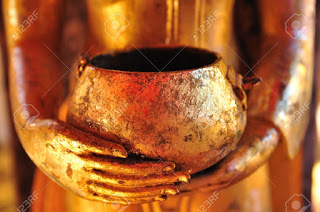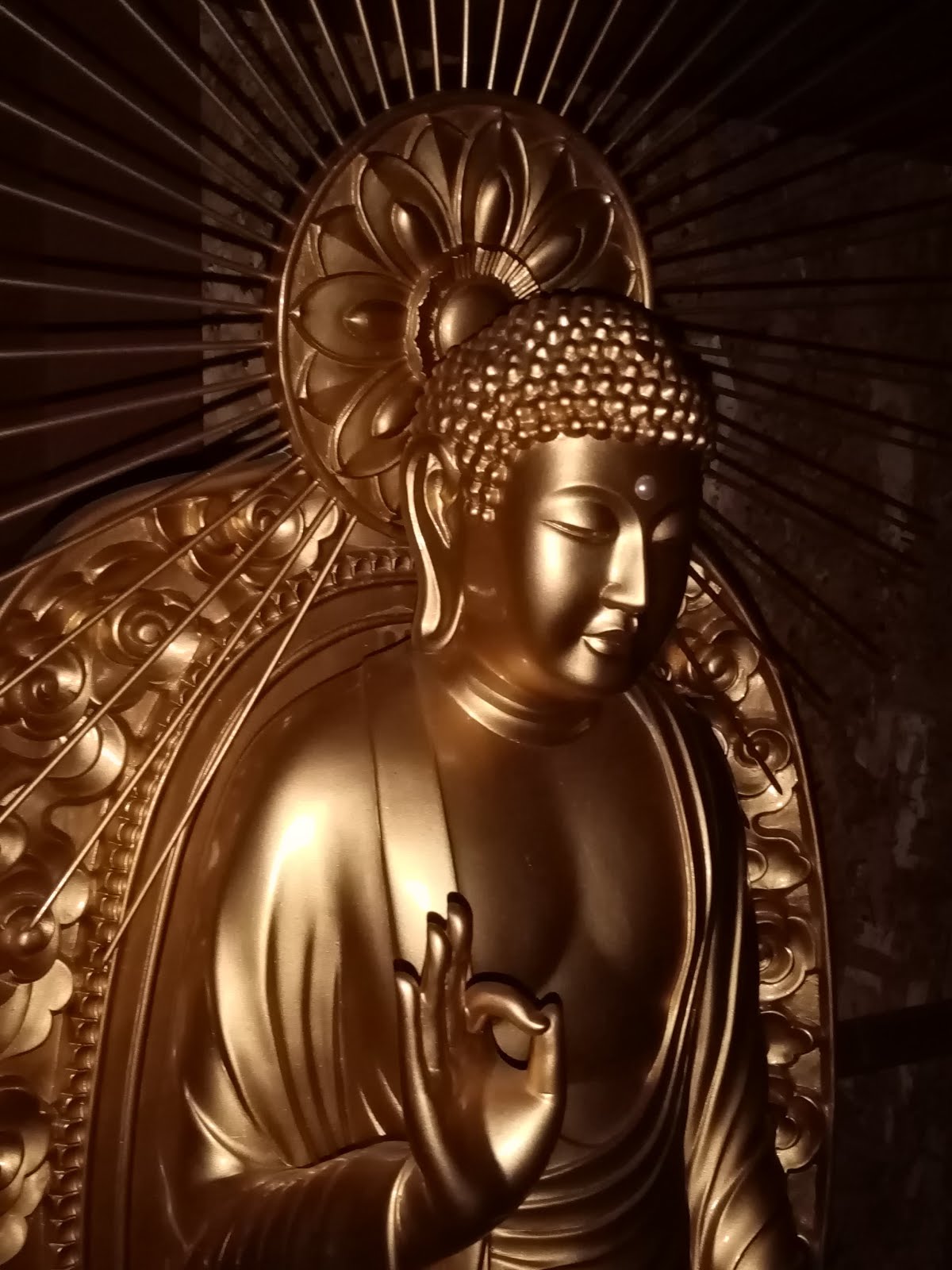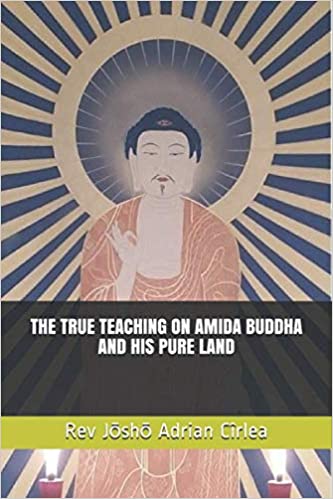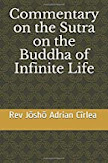Many Buddhist practitioners are
like a man staring at the sun, but with his body in a hole full of excrement.
Here the sun represents the ideal – Buddhahood to be
attained through his own power. This ideal is of course very beautiful and the
practitioner always likes to stare at it and to take delight in many beautiful
words about Enlightenment, emptiness, Buddha-nature, that we are all
Buddhas-to-be, etc. The hole with excrement is his true reality in the here and
now, his deep karmic evil, his limitations, attachments and blind passions that
cover all his body and mind.
However, he likes to dream about Enlightenment: he even
thinks that this is something that can be attained in this very life. After
all, we all have Buddha-nature, don’t we? …
And this dream continues as he practices in self-power for
20, 30, 40 years or more, until he finally dies like an ordinary unenlightened
person, going to the next life with all his karma, attachments and his so-called
“merits” accumulated in this life.
I often meet with people that talk a lot about the fact that
we all have Buddha-nature and because of this there is nothing that we have
left to do but just realize this truth in our minds. They are always full of
wise quotes by Buddhist masters and sages of the past from various schools,
about Buddha-nature, emptiness, etc. Usually such people try many types of
practices, always going here and there, never being totally satisfied with any
school or teacher. “I’m still searching”, they say, always feeling comfortable
with this searching, behaving as though they have all the time in the world.
They enjoy good books and good meditation until they suddenly die. I said that
they “suddenly die” because when death comes to them is like a surprise. In
fact, they never seriously think about death: this is why they enjoy their
“searching” for truth and the right practice.
If they were really aware of the inevitability of their own
death and impermanence, the next step would be to ask themselves in what state
of mind death will find them if it comes not tomorrow, but today, at this very
hour and second. If they were to ask themselves this question, then they could
feel the smell of the excrement they are in and awaken from the self-satisfying
dream of beautiful words about Enlightenment.
I myself was a “good” Buddhist, staring at the sun until the
awareness of my own death and impermanence hit me so powerfully and awoke me
from my dream of self-satisfaction. I suddenly became aware not only of the
fragility of my life, but also of the fragility and impermanence of my practice
based on personal power. In that moment I abandoned myself and took refuge in
Amida. Since then, I cannot deceive myself with my spiritual “realizations”.
I imagine myself as a man lying helplessly in a deep and
dark ravine with walls so steep and slippery that they cannot be climbed given
my weak body. A good man sees me and throws a strong rope to me. But being so
weak, I cannot climb myself on it, so he tells me just to tie myself to this
strong rope and let myself to be lifted by him. He tells me not to be afraid
and to have full trust in him. I do this immediately and I am finally released
from the dark ravine.
This dark ravine in which I was lying helplessly is
samsara
(the world of birth and death), the good man is Amida Buddha and the rope is
His Primal Vow through which He tries to help me. His intention is not to have
a good chat with me about emptiness or Buddha-nature, or encourage me to climb
by myself up the steep and slippery walls, because He realizes that I
definitely cannot do this. His only intention is to save me immediately,
without delay and in this very moment. He even says to me: “I beg you, take
this rope, take it immediately, there is no time!” This is what we mean when we
talk about Amida Buddha’s
call.
The rope is so well secured that I only need to let my body
be raised by it – I do not need to climb myself on it. You probably know the
kind of ropes that are launched from helicopters when injured people are saved
from various dangerous situations – these kinds of ropes are made so that
injured persons can be lifted up to safety, they do not need to climb
themselves on it.
To hear Amida’s call is to listen to the teaching, that is,
to the intention of His Primal Vow. To let myself be lifted by the rope dropped
to me by Him is shinjin (entrusting to His Primal Vow) and also Nembutsu – “yes,
I rely on you and I am grateful that you have saved me.” Entrusting myself to
Amida Buddha and being grateful to Him is Namo Amida Butsu. This how I
understand the Jodo Shinshu teaching.

























